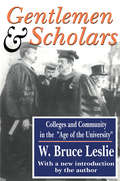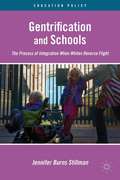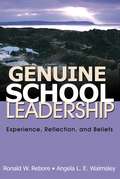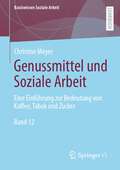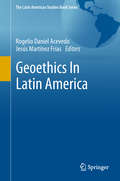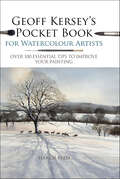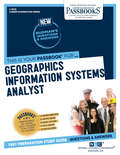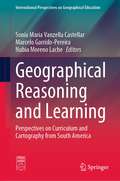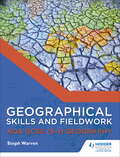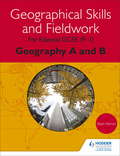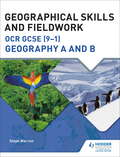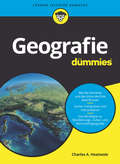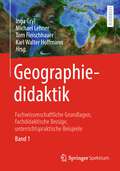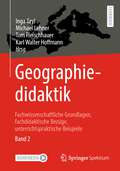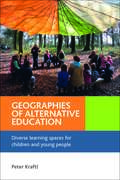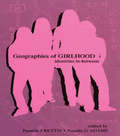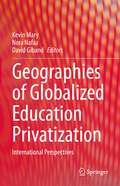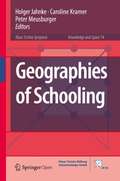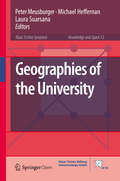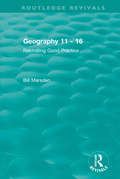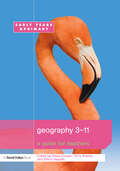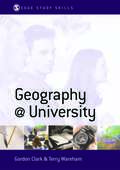- Table View
- List View
Gentlemen and Scholars: College and Community in the Age of the University
by W. Bruce LeslieHistorians have dubbed the period from the Civil War to World War I "the age of the university," suggesting that colleges, in contrast to universities, were static institutions out of touch with American society. Bruce Leslie challenges this view by offering compelling evidence for the continued vitality of colleges, using case studies of four representative colleges from the Middle Atlantic region u Bucknell, Franklin and Marshall, Princeton, and Swarthmore. A new introduction to this classic reflects on his work in light of recent scholarship, especially that on southern universities, the American college in the international context, the experience of women, and liberal Protestantism's impact on the research university.According to Leslie, nineteenth-century colleges were designed by their founders and supporters to be instruments of ethnic, denominational, and local identity. The four colleges Leslie examines in detail here were representative of these types, each serving a particular religious denomination or lifestyle. Over the course of this period, however, these colleges, like many others, were forced to look beyond traditional sources of financial support, toward wealthy alumni and urban benefactors.This development led to the gradual reorientation of these schools toward an emerging national urban Protestant culture. Colleges that responded to and exploited the new currents prospered. Those that continued to serve cultural distinctiveness and localism risked financial sacrifice. Leslie develops his argument from a close study of faculties, curricula, financial constituencies, student bodies, and campus life. The book will be valuable to those interested in American history, higher education, as well as the particular institutions studied."This book continues the story started by Veysey's Emergence of the American University. Its innovative approach should encourage scholars to study colleges and universities as parts of local communities rather than as freestanding entities. Leslie's findings will substantially revise currently accepted accounts of the history of education in the late nineteenth century."--Louise L. Stevenson, Franklin and Marshall College
Gentrification and Schools
by Jennifer Burns StillmanThrough fifty-two interviews with New York City parents in gentrifying neighborhoods, this book examines the school choice process to determine how, through the compounding effect of these parents' many individual choices, a segregated urban school in a gentrifying neighborhood is able to transform into an integrated school.
Genuine School Leadership: Experience, Reflection, and Beliefs
by Ronald W. Rebore Angela L. WalmsleyThis insightful guide explores the influence of values, experience, and beliefs on leadership practices and provides examples and reflective questions for exercising authentic, moral leadership.
Genussmittel und Soziale Arbeit: Eine Einführung zur Bedeutung von Kaffee, Tabak und Zucker (Basiswissen Soziale Arbeit #12)
by Christine MeyerDas Lehrbuch bietet einen Einstieg in Fragen rund um drei für Soziale Arbeit bedeutende Genussmittel: Kaffee, Tabak und Zucker. Fachkräfte der Sozialen Arbeit sind wiederkehrend in ganz verschiedenen Perspektiven mit ihrem Konsum befasst. Neben gesundheitsbezogenen Fragen aufgrund der gesellschaftlichen Ächtung von (zu viel) Zucker und Tabak lassen sich an ihnen bedeutende sozialpädagogische Fragen aufmachen, die jenseits gesundheitsbezogener, z. B. Fragen der Gastlichkeit, der Gestaltung professionell angenehmer Atmosphären, der Verteilung sowie des offenen Zugangs betreffen. In nahezu jedem sozialpädagogischen Setting werden täglich Verzehrsituationen bzw. Mahlzeiten geplant, angeboten und durchgeführt. Für die Soziale Arbeit über die Bereitstellung ausreichender und ausgewogener Ernährung hinaus verantwortlich ist für die Bereitstellung von Genussmitteln und deren Konsum vor dem Hintergrund gesellschaftlich relevanter eingelebter Kulturen und Traditionen. Das Lehrbuch ermöglicht, über den Gesamtzusammenhang von Genussmitteln im Zusammenhang mit Ernährung als grundlegende und voraussetzungsvolle Bedingungen sozialpädagogischen Denkens und Handelns reflektieren zu können. In allen Handlungsfeldern der Sozialen Arbeit sind Genussmittel auf unterschiedlichen Ebenen und mit verschiedenen Funktionen wiederkehrend Thema und können als täglich zu bewältigende Herausforderung eingeschätzt werden. Diese grundlegende Einführung ermöglicht eine Bewusstmachung und damit auch fachliche Reflexionsmöglichkeiten für den individuellen und gesellschaftlich verantwortlichen sozialpädagogischen Umgang von Fachkräften mit Fragen rund um die insbesondere für Soziale Arbeit bedeutenden Genussmittel Kaffee, Tabak und Zucker.
Geoethics In Latin America (The Latin American Studies Book Series)
by Rogelio Daniel Acevedo Jesús Martínez FríasThis book studies geoethics in Latin America and offers comprehensive research on geoethics and geoeducation. Its respective chapters explore geoethics in relation to UNESCO geoparks, mining activities in Latin America, natural hazards and risk management. Geoethics is a key discipline in the field of Earth and Planetary Sciences, and not only includes scientific, technological, methodological and social-cultural aspects, but also addresses the need to consider appropriate protocols, scientific integrity issues and a code of good practice when studying the abiotic world.The position of Latin America’s recently created geoethics associations is based on protection of the environment, together with a reassurance that the balance of nature and the rights of human beings to enjoy it will be preserved.
Geoff Kersey’s Pocket Book for Watercolour Artists: Over 100 Essential Tips to Improve Your Painting
by Geoff KerseyGeoff Kersey shares his expertise in this book packed full of tips for watercolour painters. Learn all you need to know, from what to buy, composing a painting and mastering techniques such as wet into wet and dry brush work, to how to paint skies, water, trees, buildings and more. The tips are clearly explained and illustrated through artwork and step-by-step photographs.This title was previously published as Geoff's Top Tips for Watercolour Artists. In this new, easy-to-use flexibinding format with an updated design, the books in the Watercolour Artists’ Pocket Books series bring you the best tips from some of Search Press's leading authors.
Geographic Information System Analyst: Passbooks Study Guide (Career Examination Series)
by National Learning CorporationThe Geographic Information System Analyst Test Passbook® prepares you for your test by allowing you to take practice exams in the subjects you need to study. It provides hundreds of questions and answers in the areas that will likely be covered on your upcoming exam.
Geographical Reasoning and Learning: Perspectives on Curriculum and Cartography from South America (International Perspectives on Geographical Education)
by Sonia Maria Vanzella Castellar Marcelo Garrido-Pereira Nubia Moreno LacheThis book presents the distinctive theoretical and methodological approaches in geography education in South America and more specifically in Brazil, Chile and Colombia. It highlights cartography and maps as essential tools and provides a meaningful approach to learning in geographical education, thereby giving children and young people the opportunity to better understand their situations, contexts and social conditions. The book describes how South American countries organize their scholar curriculum and the ways in which they deal with geography vocabulary and developing fundamental concepts, methodologies, epistemological comprehension on categories, keywords and themes in geography. It also describes its use in teachers’ practices and learning progressions, the use of spatial representations as a potent mean to visualize and solve questions, and harnesses spatial thinking and geographical reasoning development. The book helps to improve teaching and learning practices in primary and secondary education and as such it provides an interesting read for researchers, students, and teachers of geography and social studies.
Geographical Skills and Fieldwork for AQA GCSE (91) Geography
by Steph WarrenMaximise every student's grade potential with a step-by-step approach to learning, improving and applying the geographical and fieldwork skills they need to achieve stand-out success under the reformed AQA GCSE Geography specification.- Provides a complete, tailor-made solution to teaching the cartographic, graphical, numerical and statistical skills emphasised in the 2016 AQA GCSE geography specification- Helps you prepare students for the changed fieldwork assessments and new question formats with a dedicated section on geographical enquiries- Supports students of varying abilities by moving from clear explanations of each skill to easy-to-follow guidance on applying the skills in an examination context- Offers plenty of opportunities to put newly-acquired skills into practice through a range of activities for all learners, as well as extension tasks designed for students targeting the top grades- Boosts students' confidence tackling terminal assessment with skills-focused exam-style questions and insider tips on common question types and topics- Cuts down your marking time and enables students to monitor their own progress by including answers for every activity and exam-style question
Geographical Skills and Fieldwork for AQA GCSE (9–1) Geography
by Steph WarrenMaximise every student's grade potential with a step-by-step approach to learning, improving and applying the geographical and fieldwork skills they need to achieve stand-out success under the reformed AQA GCSE Geography specification.- Provides a complete, tailor-made solution to teaching the cartographic, graphical, numerical and statistical skills emphasised in the 2016 AQA GCSE geography specification- Helps you prepare students for the changed fieldwork assessments and new question formats with a dedicated section on geographical enquiries- Supports students of varying abilities by moving from clear explanations of each skill to easy-to-follow guidance on applying the skills in an examination context- Offers plenty of opportunities to put newly-acquired skills into practice through a range of activities for all learners, as well as extension tasks designed for students targeting the top grades- Boosts students' confidence tackling terminal assessment with skills-focused exam-style questions and insider tips on common question types and topics- Cuts down your marking time and enables students to monitor their own progress by including answers for every activity and exam-style question
Geographical Skills and Fieldwork for Edexcel GCSE (91) Geography A and B
by Steph WarrenMaximise every student's grade potential with a step-by-step approach to learning, improving and applying the geographical and fieldwork skills they need to achieve stand-out success under the reformed Edexcel A and B GCSE Geography specifications.- Provides a complete, tailor-made solution to teaching the cartographic, graphical, numerical and statistical skills emphasised in the 2016 Edexcel A and B GCSE geography specifications- Helps you prepare students for the changed fieldwork assessments and new question formats with a dedicated section on geographical enquiries- Supports students of varying abilities by moving from clear explanations of each skill to easy-to-follow guidance on applying the skills in an examination context- Offers plenty of opportunities to put newly-acquired skills into practice through a range of activities for all learners, as well as extension tasks designed for students targeting the top grades- Boosts students' confidence tackling terminal assessment with skills-focused exam-style questions and insider tips on common question types and topics- Cuts down your marking time and enables students to monitor their own progress by including answers for every activity and exam-style question
Geographical Skills and Fieldwork for OCR GCSE (9–1) Geography A and B
by Steph WarrenMaximise every student's grade potential with a step-by-step approach to learning, improving and applying the geographical and fieldwork skills they need to achieve stand-out success under the reformed OCR A and B GCSE Geography specifications.- Provides a complete, tailor-made solution to teaching the cartographic, graphical, numerical and statistical skills emphasised in the 2016 OCR A and B GCSE Geography specifications- Helps you prepare students for the changed fieldwork assessments and new question formats with a dedicated section on geographical enquiries- Supports students of varying abilities by moving from clear explanations of each skill to easy-to-follow guidance on applying the skills in an examination context- Offers plenty of opportunities to put newly-acquired skills into practice through a range of activities for all learners, as well as extension tasks designed for students targeting the top grades- Boosts students' confidence tackling terminal assessment with skills-focused exam-style questions and insider tips on common question types and topics- Cuts down your marking time and enables students to monitor their own progress by including answers for every activity and exam-style question
Geographie für Dummies (Für Dummies)
by Charles A. HeatwoleBei der Geografie geht es längst nicht nur darum, zu wissen, wo welches Land oder welcher Fluss zu finden ist. "Geografie für Dummies" erklärt Ihnen, wie das geografische Koordinatensystem aufgebaut ist, wie man damit Orte bestimmt und so Karten richtig deutet. Im Mittelpunkt des Buches stehen die Geofaktoren Boden, Wasser und Klima und deren Wechselwirkungen miteinander: Wie formen Vulkane, Erosion und Wetter die Erdoberfläche? Wie beeinflussen die Ozeane das Klima? Und wie ist es möglich, dass Wüste und Regenwald nur durch eine Bergkette voneinander getrennt sind? Aber auch der Einfluss des Menschen kommt nicht zu kurz, so wird auch die urbane, politische und wirtschaftliche Geografie erläutert. Egal, ob Sie wissen möchten, wie das Klima die Erde beeinflusst oder wo ein günstiger Standort für das nächste Eigenheim wäre, dieses Buch liefert Ihnen alle Antworten.
Geographiedidaktik: Fachwissenschaftliche Grundlagen, fachdidaktische Bezüge, unterrichtspraktische Beispiele - Band 1
by Inga Gryl Michael Lehner Tom Fleischhauer Karl Walter HoffmannMit dem zweibändigen Werk liegt das erste deutschsprachige Lehrbuch zur Geographiedidaktik vor, welches konkret zum kreativen und praxistauglichen Verknüpfen von fachwissenschaftlichen und fachdidaktischen Bezügen anregt. Mit Hilfe eines „Didaktischen Mischpults“ sollen mannigfaltige didaktische Variations- und Kombinationsmöglichkeiten gelingen. Hierfür stehen neben dem klassischen Inhaltsverzeichnis fünf weitere Verzeichnisse zur Verfügung, die einen einfachen Zugriff auf die einzelnen Abschnitte der jeweiligen Beiträge (geographiedidaktische Bezüge, fachwissenschaftliche Bezüge, Basiskonzepte, Kompetenzen, räumliche Bezüge) ermöglichen und somit ein eigenständiges (Re-)Mixen erleichtern. Außerdem stehen zu vielen Beiträgen konkrete Arbeitsmaterialien und editierbare Druckvorlagen in einem digitalen Materialanhang bereit. Die Gesamtkonzeption des Werks betont die Interdisziplinarität des Fachs Geographie im Bezug zu Natur- und Gesellschaftswissenschaften und stellt die Verflechtung beider Bereiche als Normalfall dar. Mit Blick auf die fachwissenschaftlichen Bezugspunkte und die Orientierung in Lehrplänen werden in Band 1 naturwissenschaftliche und in Band 2 gesellschaftswissenschaftliche zentrierte Anwendungsbezüge dargestellt, aber stets mit interdisziplinären Bezügen im Bereich Mensch-Umwelt-System, da vor dem Hintergrund von Vernetzung und Komplexität keine scharfe Trennung möglich und sinnvoll ist. Beide Bände beinhalten zudem methodische Themen, die im Band 1 die technischen Grundlagen und im Band 2 die sozialgeographischen Implikationen in einer Kultur der Digitalität fokussieren. Die beiden Bände sind ein umfassendes Gemeinschaftswerk, das verschiedene Professionen und Expertisen vereint. Die 83 Autor*innen aus der gesamten deutschsprachigen Community der Geographiedidaktik sind in Schulpraxis, Lehramtsausbildung und/oder fachdidaktischer Forschung tätig. Leitend ist dabei eine theoretisch und empirisch fundierte, reflektierte Praxis. Damit richtet sich das Werk an Schulpraktiker*innen, Lehrer*innen, Referendar*innen, Studierende, Fachdidaktiker*innen, Lehramtsbildner*innen, Theoretiker*innen und Interessierte.
Geographiedidaktik: Fachwissenschaftliche Grundlagen, fachdidaktische Bezüge, unterrichtspraktische Beispiele - Band 2
by Inga Gryl Michael Lehner Tom Fleischhauer Karl Walter HoffmannMit dem zweibändigen Werk liegt das erste deutschsprachige Lehrbuch zur Geographiedidaktik vor, welches konkret zum kreativen und praxistauglichen Verknüpfen von fachwissenschaftlichen und fachdidaktischen Bezügen anregt. Mit Hilfe eines „Didaktischen Mischpults“ sollen mannigfaltige didaktische Variations- und Kombinationsmöglichkeiten gelingen. Hierfür stehen neben dem klassischen Inhaltsverzeichnis fünf weitere Verzeichnisse zur Verfügung, die einen einfachen Zugriff auf die einzelnen Abschnitte der jeweiligen Beiträge (geographiedidaktische Bezüge, fachwissenschaftliche Bezüge, Basiskonzepte, Kompetenzen, räumliche Bezüge) ermöglichen und somit ein eigenständiges (Re-)Mixen erleichtern. Außerdem stehen zu vielen Beiträgen konkrete Arbeitsmaterialien und editierbare Druckvorlagen in einem digitalen Materialanhang bereit.Die Gesamtkonzeption des Werks betont die Interdisziplinarität des Fachs Geographie im Bezug zu Natur- und Gesellschaftswissenschaften und stellt die Verflechtung beider Bereiche als Normalfall dar. Mit Blick auf die fachwissenschaftlichen Bezugspunkte und die Orientierung in Lehrplänen werden in Band 1 naturwissenschaftliche und in Band 2 gesellschaftswissenschaftliche zentrierte Anwendungsbezüge dargestellt, aber stets mit interdisziplinären Bezügen im Bereich Mensch-Umwelt-System, da vor dem Hintergrund von Vernetzung und Komplexität keine scharfe Trennung möglich und sinnvoll ist. Beide Bände beinhalten zudem methodische Themen, die im Band 1 die technischen Grundlagen und im Band 2 die sozialgeographischen Implikationen in einer Kultur der Digitalität fokussieren.Die beiden Bände sind ein umfassendes Gemeinschaftswerk, das verschiedene Professionen und Expertisen vereint. Die 83 Autor*innen aus der gesamten deutschsprachigen Community der Geographiedidaktik sind in Schulpraxis, Lehramtsausbildung und/oder fachdidaktischer Forschung tätig. Leitend ist dabei eine theoretisch und empirisch fundierte, reflektierte Praxis. Damit richtet sich das Werk an Schulpraktiker*innen, Lehrer*innen, Referendar*innen, Studierende, Fachdidaktiker*innen, Lehramtsbildner*innen, Theoretiker*innen und Interessierte.
Geographies of Alternative Education: Diverse Learning Spaces for Children and Young People
by Peter KraftlThis book offers a comparative analysis of alternative education in the UK, focusing on learning spaces that cater for children and young people. It constitutes one of the first book-length explorations of alternative learning spaces outside mainstream education - including Steiner, human scale and forest schools, care farms and homeschooling.Based on original research with teachers, parents and young people at over 50 learning spaces, Geographies of alternative education demonstrates the importance of a geographical lens for understanding alternative education. In so doing, it develops contemporary theories of autonomy, emotion/affect, habit, intergenerational relations and life-itself. The book will appeal to academics and postgraduates in the fields of geography, sociology, education and youth studies. Given ongoing concerns about the state's role in providing children's education, and an increase in the number of alternative education providers in the UK and elsewhere, the book also highlights several critical questions for policy makers and practitioners.
Geographies of Girlhood: Identities In-between (Inquiry and Pedagogy Across Diverse Contexts Series)
by Pamela J. Bettis Natalie G. AdamsGeographies of Girlhood: Identities In-Between explores how adolescent girls come to understand themselves as female in this culture, particularly during a time when they are learning what it means to be a woman and their identities are in-between that of child and adult, girl and woman. It illuminates the everyday realities of adolescent girls and the real issues that concern them, rather than what adult researchers think is important to adolescent girls. The contributing authors take seriously what girls have to say about themselves and the places and discursive spaces that they inhabit daily. Rather than focusing on girls in the classroom, the book explores adolescent female identity in a myriad of kid-defined spaces both in-between the formal design of schooling, as well as outside its purview--from bedrooms to school hallways to the Internet to discourses of cheerleading, race, sexuality, and ablebodiness. These are the geographies of girlhood, the important sites of identity construction for girls and young women. This book is situated within the fledgling field of Girls Studies. All chapters are based on field research with adolescent girls and young women; hence, the voices of girls themselves are primary in every chapter. All of the authors in the text use the notion of liminality to theorize the in-between spaces and places of schools that are central to how adolescent girls construct a sense of self. The focus of the book on the fluidity of femininity highlights the importance of race, class, sexual orientation, and other salient features of personal identity in discussions of how girls construct gendered identities in different ways. Geographies of Girlhood: Identities In-Between challenges scholars, professionals, and students concerned with gender issues to take seriously the everyday concerns of adolescent girls. It is recommended as a text for education, sociology, and women's studies courses that address these issues.
Geographies of Globalized Education Privatization: International Perspectives
by Kevin Mary Nora Nafaa David GibandThis book explores the complex and various forms that privatization of education takes on a global scale at different ages of schooling. Through the spread of neoliberal policies in education both in the global North and the global South, the book suggests that this process is leading to new forms of schooling and socio-spatial dynamics linked to the creation of increasingly competitive school markets. The book highlights some of the main issues that such competition generates by focusing on the acceleration of the segregative processes on one hand but also on the alternatives that are emerging regarding this global context on the other hand. It considers processes of domination, hegemony, but also exclusion and segregation, eventually exploring contradictions inherent to societies. It presents innovative empirical and conceptual research by international scholars from the fields of social geography, sociology, history and demography in the United States, Lebanon, France, Afghanistan and Chile, thereby transcending disciplinary boundaries. Developed in under or unexplored contexts, the book broadens the reflection to social representations, individual and collective strategies, adaptation, innovation and also resistances.
Geographies of Schooling (Knowledge and Space #14)
by Peter Meusburger Holger Jahnke Caroline KramerThis open access book explores the complex relationship between schooling as a set of practices embedded in educational institutions and their specific spatial dimensions from different disciplinary perspectives. It presents innovative empirical and conceptual research by international scholars from the fields of social geography, pedagogy, educational and social sciences in Germany, the United Kingdom, France, Czechia, Hungary, Austria, Switzerland, Norway and Canada. The book covers a broad range of topics, all examined from a spatial perspective: the governance of schooling, the transition processes of and within national school systems, the question of small schools in peripheral areas as well as the embeddedness of schooling in broader processes of social change. Transcending disciplinary boundaries, the book offers deep insights into current theoretical debates and empirical case studies within the broad research field encompassing the complex relationship between education and space.
Geographies of the University (Knowledge and Space #12)
by Michael Heffernan Peter Meusburger Laura SuarsanaThis open access volume raises awareness of the histories, geographies, and practices of universities and analyzes their role as key actors in today’s global knowledge economy. Universities are centers of research, teaching, and expertise with significant economic, social, and cultural impacts at different geographical scales. Scholars from a variety of disciplines and countries offer original analyses and discussions along five main themes: historical perspectives on the university as a site of knowledge production, cultural encounter, and political interest; institutional perspectives on university governance and the creation of innovative environments; relationships between universities and the city; the impact of universities on national and regional economies and cultures; and the processes of internationalization through student mobility, the creation of education hubs, and global regionalism in higher education.
Geography 11 - 16: Rekindling Good Practice (Routledge Revivals)
by Bill MarsdenPublished in 1995, this book seeks to show how geography teachers can meet the requirements of the National Curriculum at Key Stages 3 and 4 without abandoning principles of good practice. It considers geographical education in the contexts of geography itself, society and education. Deriving principles of good practice from these contexts, the author gives guidance on how to produce case studies (or curriculum units) that both reflect these principles and respond to the requirements of the National Curriculum following the Dearing Revised Order.
Geography 11th Standard - Tamilnadu Board
by Training State Council of Educational ResearchGeography Textbook for the 11th Standard Students, preparing for Tamil Nadu State Board Exam.
Geography 12th Standard - Tamilnadu Board
by Training State Council of Educational ResearchGeography Textbook for the 12th Standard Students, preparing for Tamil Nadu State Board Exam.
Geography 3-11: A Guide for Teachers
by Hilary CooperThe advent of the National Primary Strategy has produced a welcome reminder to teachers of the importance of geography within the primary curriculum. This book aims to encourage this renewed awareness and to support teachers in teaching primary geography in different and exciting ways. It will show that children have an entitlement to learn about geography and this can be achieved in a lively, creative fashion uplifting for both teachers and children. It covers: planning for and assessing progression in learning inclusion ICT and drama indoors, outdoors and beyond. Written in association with the Geographical Association, this book will help both trainee and experienced teachers to integrate geography as an essential part of the primary curriculum.
Geography @ University: Making the Most of Your Geography Degree and Courses (SAGE Study Skills Series)
by Gordon Clark Terry Wareham`This is an essential easy-to-use guide to geography. It is unique in providing not only passive advice but also offering activity based guidance to both potential and current geography undergraduates. Geography at University is wide ranging in its approach offering assistance to all; from those who need help with their dissertation to those writing their curriculum vitae. It is an all encompassing text which offers a fresh and original outlook on geography at degree level' - Lorraine Craig, Royal Geographical Society (with Institute of British Geographers) Geography at University will show students how to do better at university when studying for their degree in geography. It explains how university - and geography at university - differs from the subject at school. At university, students are taught new topics in different ways and will be tested on different abilities - the ability to understand, to explain and to apply knowledge; rather than just on the knowledge itself. This means that students need to learn the subject in new ways: Geography at University shows them exactly how to do that. Being at university is a phase between school and career, this book will show students how university geography builds on school geography and gives them skills employers will be looking for when appointing graduates. Geography at University reviews each of the main methods by which students are taught geography - lectures, tutorial, fieldwork, practicals and projects - and explains what tutors will be trying to do during these sessions so that students can gain the most from teaching. Geography at University explains what tutors are looking for when assessing students works through their essays, examinations, oral presentations anddissertations. There is more to getting a degree than just studying geography. There is much that students can do through a gap year or taking paid or voluntary work to give them an edge when applying for jobs after graduation, and Geography at University explains how they can make the most of these opportunities as well.
